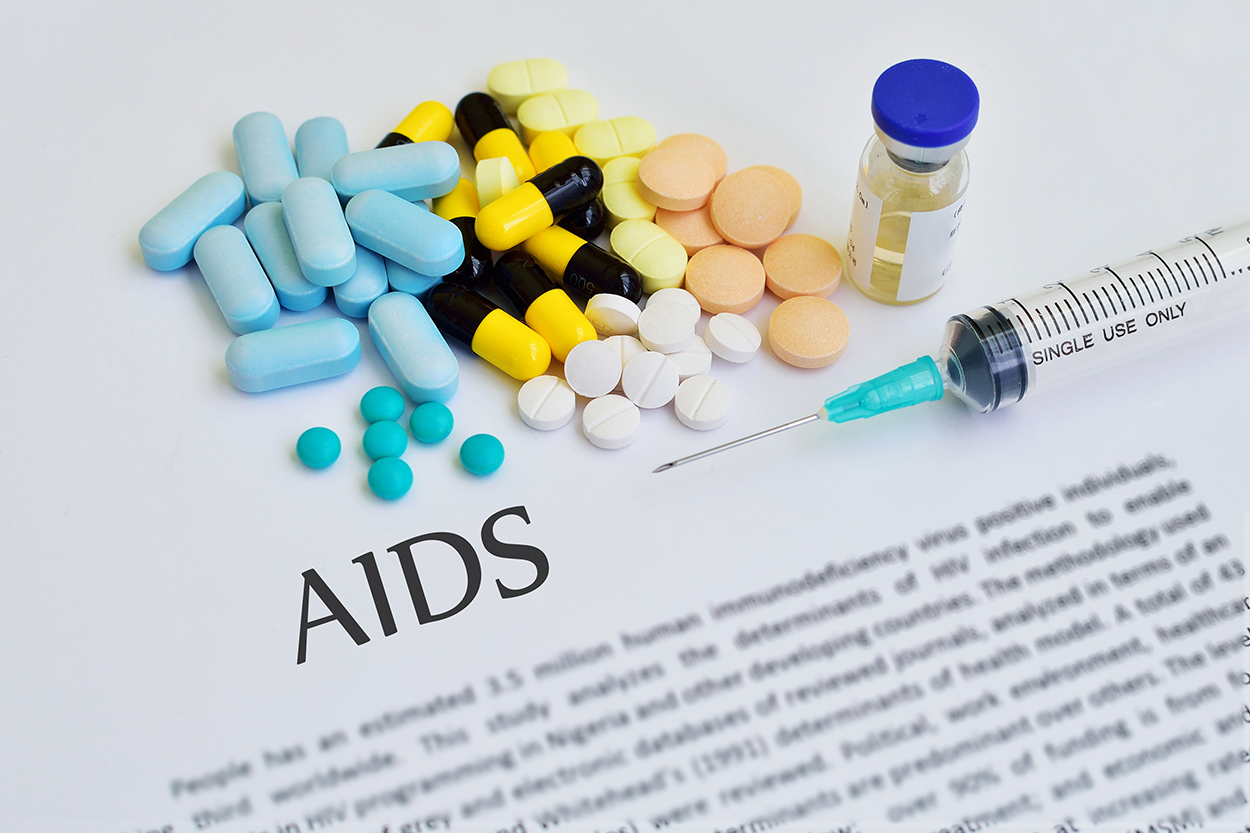AUSTRALIAN states are leading the world in large-scale trials of pre-exposure prophylaxis (PrEP) for HIV-negative members of at-risk populations, say experts in the field.
Tenofovir disoproxil–emtricitabine (known commercially as Truvada) is a fixed-dose combination of two antiretroviral drugs used for the treatment of HIV/AIDS. It has been approved for that use in Australia by the Therapeutic Goods Administration (TGA), but has not yet been licenced for use as PrEP.
NSW and Victoria are leading the way with large PrEP trials either just starting or in the final stages of ethics approval and recruiting.
In NSW, the Expanded PrEP Implementation in Communities in NSW (EPIC NSW) trial is being run by the Kirby Institute and began recruiting 3700 high-risk candidates in March.
Professor Basil Donovan, Head of the Sexual Health Program at the Kirby Institute, told MJA InSight that EPIC NSW was supported by NSW Health, and recruiting was targeting gay and bisexual men who will be followed for 2 years while they take PrEP.
“We’re lucky in NSW,” Professor Donovan said. “The urban gay men are very knowledgeable about PrEP, and have a very tight information network.” He was optimistic that the study recruits were therefore highly motivated to adhere to the daily regimen of medication needed to make PrEP medically and cost-effective.
In Victoria, Associate Professor Edwina Wright, from the Department of Infectious Diseases at Alfred Health and Monash University, said she and her colleagues were close to gaining ethical approval for a study involving 2600 HIV-negative participants.
“This study is designed to provide PrEP to 2600 people and we think by doing that, we can reduce new HIV infections in gay men by about a third,” Associate Professor Wright told MJA InSight.
Currently, the majority of Australian patients who want to try PrEP must import the drug themselves either directly from Gilead Sciences, the manufacturer, at a cost believed to be about $12 000 a year, or by purchasing it from international online pharmacies.
In an interview with the ABC, Associate Professor Wright said the large number of people finding their own way to PrEP was indicative of the strong evidence base backing up the drug’s efficacy and safety.
- Related: MJA — Standing at the crossroads in HIV management: implications for primary care practice from the AIDS 2014 conference
- Related: MJA InSight — Darren Russell: Should we screen for HIV?
“I think that people are feeling confident that these drugs are well recognised, are from reputable companies, and have been reviewed by different regulatory bodies in terms of the quality of their products,” she told the ABC. “There’s a huge amount of excellent quality data to show how effective it is … that people take it well, adherence is good and seems to improve people’s quality of life,” Dr Wright said.
Both Professor Donovan and Associate Professor Wright were commenting to MJA InSight following the publication this week of new South African PrEP research in the Journal of Infectious Diseases.
The modelling study compared three PrEP strategies – no PrEP, standard PrEP (daily tablet), and a long-acting PrEP – in South African women at high risk for HIV infection over a 5-year period, measuring deaths averted, program cost, lifetime HIV infection risk, survival rate, cost-effectiveness and budget impact.
“Compared with no PrEP, standard PrEP and long-acting PrEP cost $580 and $870 more per woman, respectively, and averted 15 and 16 deaths per 1000 women at high risk for infection, respectively, over 5 years,” the authors wrote.
“Measured on a lifetime basis, both standard PrEP and long-acting PrEP were cost saving, compared with no PrEP. Compared with standard PrEP, long-acting PrEP was very cost-effective ($150/life-year saved) except under the most pessimistic assumptions. Over 5 years, long-acting PrEP cost $1.6 billion when provided to 50% of eligible women.
“Currently available standard PrEP is a cost-saving intervention [the delivery of which] should be expanded and optimised. Long-acting PrEP will likely be a very cost-effective improvement over standard PrEP but may require novel financing mechanisms that bring short-term fiscal planning efforts into closer alignment with longer-term societal objectives,” they concluded.
Current models of long-term PrEP include a 3-monthly injection, similar to Depo Provera for contraceptive purposes, Professor Donovan told MJA InSight.
The South African study “certainly shakes up the pot” he said, calling the cost-effectiveness findings, particularly about long-acting PrEP, “a breakthrough”.
“In theory, there can be a serious reduction [in infection rates] and massive savings down the line.
Initial wariness about PrEP’s potential to undermine other safe sex measures, such as condom use, were far outweighed by the potential “to avert and retard HIV infections,” he said.
“We will need to get imaginative with the way we deal with the downsides.”
Associate Professor Wright told MJA InSIght the South African study’s findings about the cost-effectiveness of PrEP and the potential cost-saving effects of long-acting PrEP were “critical”.
“We need to convince governments to allocate appropriate funding. We’re hoping to see a new cost-effectiveness trial coming out of Australia soon.”
Although Australia had lagged slightly behind the US, Canada and Israel in approving tenofovir disoproxil–emtricitabine, no other countries were running studies as large as the ones currently starting up here, she said.
“We are leading the world in the big PrEP studies. Nobody else is following participants over 2 years.”
Websites such as PrEPaccessNOW have been set up to help people obtain information and supplies of PrEP.

 more_vert
more_vert